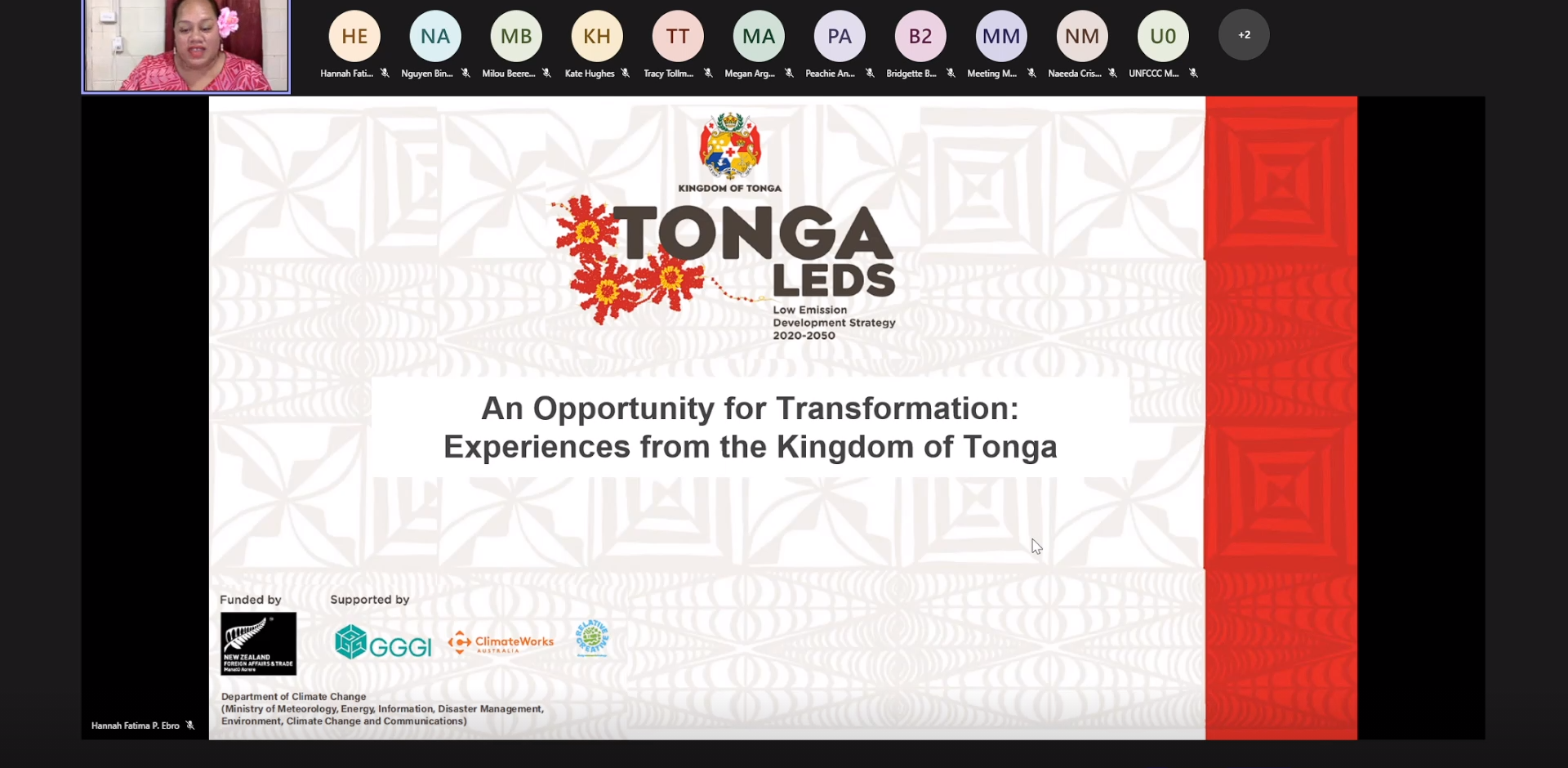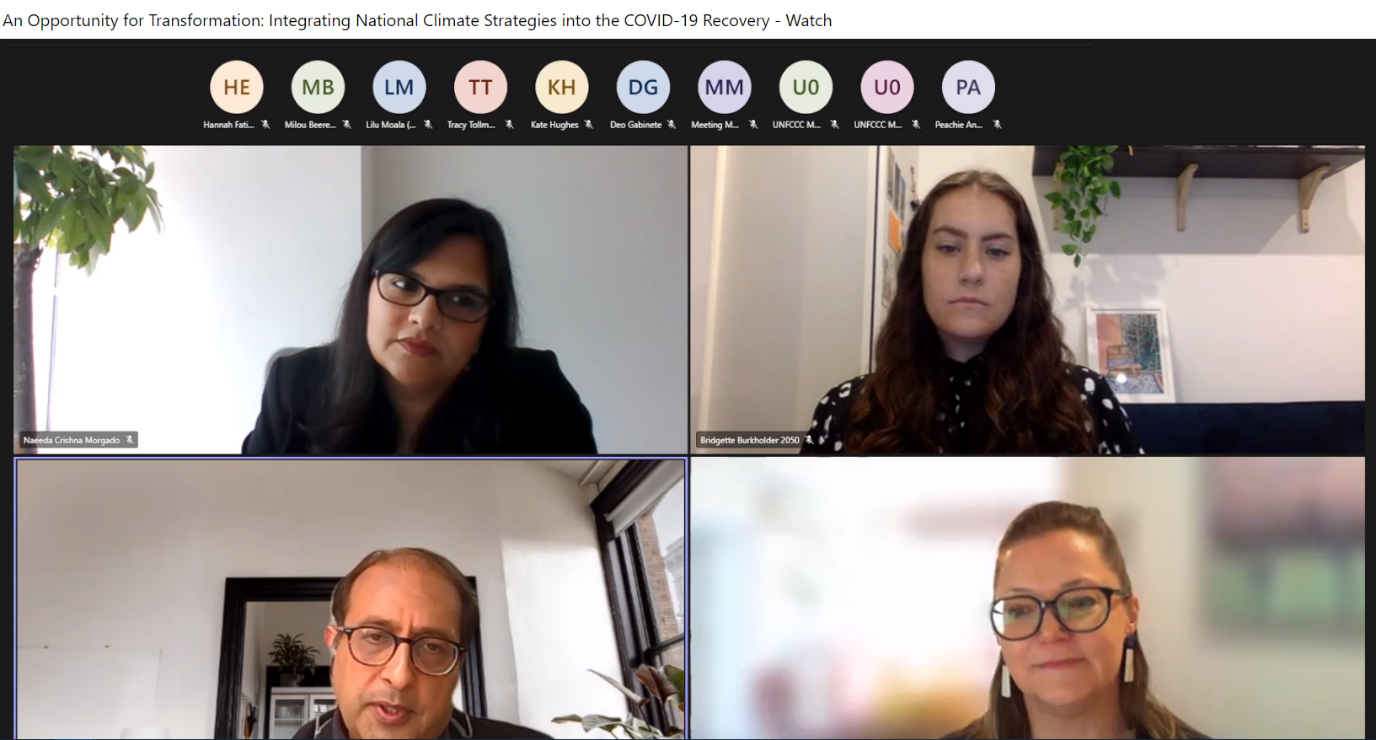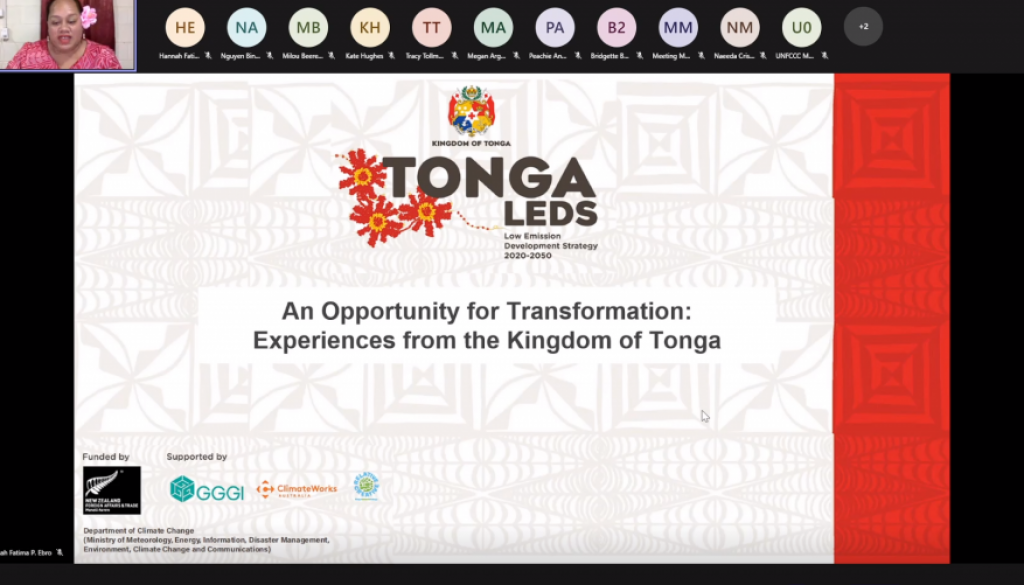Tonga profiles its leadership in developing a long-term climate strategy at the Asia-Pacific Climate Week 2021
Tonga profiles its leadership in developing a long-term climate strategy at the Asia-Pacific Climate Week 2021
On Tuesday 6th July 2021, during the virtual thematic sessions of Asia-Pacific Climate Week, the Asian Development Bank (ADB) convened a panel of expert speakers to share experiences on incorporating climate and resilience considerations into COVID-19 recovery planning and their implications in laying a solid foundation toward a low-carbon and resilient economy.
These virtual thematic sessions of the Asia-Pacific Climate Week are an opportunity to strengthen regional collaboration on climate action and build momentum ahead of at the twenty sixth conference of the Parties to the United Nations Framework Convention on Climate Change (UNFCCC) or COP26 in Glasgow in November this year. The virtual event is made possible by various organizations and the host – the Government of Japan. The expertise, experiences and climate action shared throughout the week is envisaged to inspire more ambitious climate actions throughout the region.
Ms Lilu Moala from Tonga’s Department of Climate Change, under MEIDECC, presented a summary of Tonga’s Low Emission Climate Resilient Development Strategy (LEDS) Project and shared lessons learnt so far.
The Government of Tonga intends to submit its long term strategy at COP26 in November this year. Tonga has demonstrated leadership by concurrently developing its strategy with its Second or Enhanced Nationally Determined Contribution (NDC), enabling the two documents to be mutually reinforcing. Tonga’s Enhanced NDC was submitted to the UNFCCC after the Long-term strategy’s visioning exercise, in December 2020.

Ms. Lilu Moala presenting at the ADB’s panel during the Asia-Pacific Climate Week.
In her presentation, Ms Moala outlined some of the lessons learnt so far. The first is that taking a participatory approach can be robust. Tonga’s LEDS project takes a participatory approach that provides decision-makers with qualitative information and takes them through multiple rounds of divergent thinking (open, creative, playful, nonjudgmental) to create choices and convergent thinking (analytical, decisive, and strategic) to make choices. Secondly, the process of considering the future, its trade-offs and benefits, is just as important as the final document. Observations from the first and second workshops – which had participants from all government ministries, state owned enterprise, private sector and civil society – indicated a greater consideration of strategic, cross-sectoral planning. This process intends to strengthen and extend existing processes of dialogue and governance so that Tonga can further enhance its capability for long-term, strategic planning.
Finally, remote facilitation of these processes is possible and has unintended benefits. While in person is preferable in many ways, Tonga’s activities so far demonstrate that successful implementation can be achieved through remote support (with travel restrictions prevent the consulting team from being in Tonga). The in-country process is completely led by the Tongan government and local facilitators, leading to greater capacity and ownership of the process at the local level. In some ways COVID has brought unintended benefits to our project implementation.

Tonga’s lessons learned from the long-term development strategy processes.
Ms Moala was joined on the panel by L-R: Naeeda Chrishna Morgado (ADB), Bridgette Burkholder from (2050 Pathways Platform), Anouj Mehta (ADB) and Meg Argyriou (ClimateWorks Australia)

Tonga’s LEDS Project is funded by the New Zealand government, and supported by ClimateWorks Australia, the Global Green Growth Institute and Relative Creative.
END.

